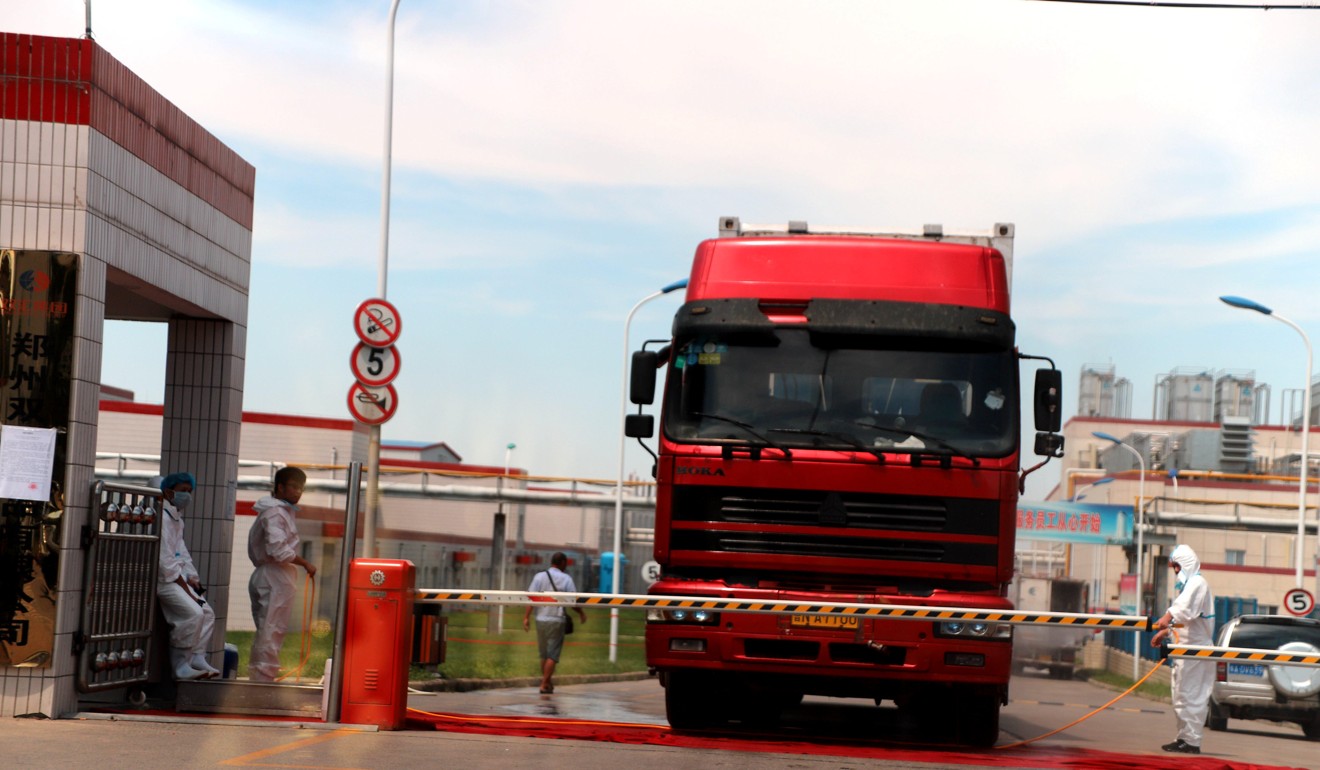
China on alert for African swine fever virus but will it hit its pig industry?
Analyst says reporting of outbreaks shows major gains from similar crisis more than a decade ago
Agricultural officers across China have been ordered to control the spread of African swine fever in the world’s biggest pig-farming country amid fears that it could deal a heavy blow to the industry.
The Ministry of Agriculture and Rural Affairs has mobilised inspectors from Heilongjiang in the north to Guangdong in the south.
The virus, which does not affect humans but is lethal to pigs, has been detected in four provinces in China in the last month.
But one industry analyst said the detailed reporting of the spread signalled a marked improvement in disease control from an outbreak of another swine virus about a decade ago.
China confirmed the presence of African swine fever on August 3 after a number of pigs died in Shenyang, Liaoning province. It was the first time the virus, which had infected herds in Germany and Russia, had been found in China.
New outbreak shows African swine fever moving south through China’s pig farms
Three more cases of the virus were confirmed this month, with a report on Wednesday of 340 pigs killed and 430 others infected in Yueqing, Zhejiang province. Four days earlier, 88 pigs were reported killed and 615 infected with the virus in Lianyungang in neighbouring Jiangsu province.
In another case, a slaughterhouse controlled by Shuanghui Development, a subsidiary of the world’s largest pork meat processor WH Group, suspended operations after the virus was detected in dead pigs from Jiamusi in Heilongjiang province.
China has sought to prevent the disease spreading by culling more than 25,000 pigs in the outbreak areas. While the culled number is minuscule compared with China’s overall herd of 380 million pigs, there is unease that the virus could affect supplies of one of the country’s staple foods.
The central government has also yet to publicly identify where the virus came from.

However, an analyst said the impact of the virus could be manageable thanks to better disease controls.
Feng Yonghui, chief analyst at online pig industry website Soozhu, said the relatively swift and detailed reporting of the outbreaks was not a sign for panic but cause for comfort, showing that farmers and disease control officials were on the same page.
“Pig farmers have no incentives to hide [an outbreak] because they know they can receive an 800 yuan (US$117.50) subsidy for every pig infected with the virus ... Local government officials know there’s no benefits for them to cover up,” Feng said. “It seems a mission impossible to check the physical condition of 400 million pigs, but it’s actually feasible once everyone, especially the pig owners, are motivated to do so.”
He said the situation was different from the outbreak of blue-ear disease in 2006, when there were few subsidies for affected pigs, breeders tried to under-report disease and local officials were unprepared to contain the virus.
China to introduce stricter controls on pig farming after African swine fever outbreak
When African swine fever was spotted in Liaoning in early August, the provincial authority started carrying out checks of all pigs in the province. By August 15, the province’s animal health authority said it had inspected 355,400 pigs, taking 10,791 suspect samples for additional assessment. In all, 22 samples, all from Shenyang, tested positive for the virus, the authorities said.
In cities and provinces where no African swine fever was reported, animal health authorities are also on high alert. Guangdong held a three-day meeting and training course for 120 local officials, telling them how to prevent the virus.
At the same time, pork prices across the country have stayed relatively stable.
According to Zhujiage.com, a website tracking daily hog prices, the average hog price in China on Sunday was 13.76 yuan per kilogram, a rise of 0.02 yuan per kilogram from Saturday. On August 3 when the virus was firstly confirmed, the price was 12.85 yuan per kilogram.
A number of Chinese listed companies involved in pig farming, including Chuying Agro-Pastoral Group, Ningbo Tech-bank Food, Muyuan Foods, Guangdong Wens Foodstuff Group and Jiangxi Zhenbang Technology, have issued corporate filings in the last two weeks, saying their pig farms were not affected by the swine fever.
On Friday, state radio quoted Zhu Zengyong, a researcher with the Chinese Academy of Agricultural Sciences, a think tank affiliated with the agriculture ministry, as saying the fever would have only a limited impact on China’s overall pork supply and demand.
The virus is inactive in processed meat when its heated to at least 70 degrees Celsius for 30 minutes.

